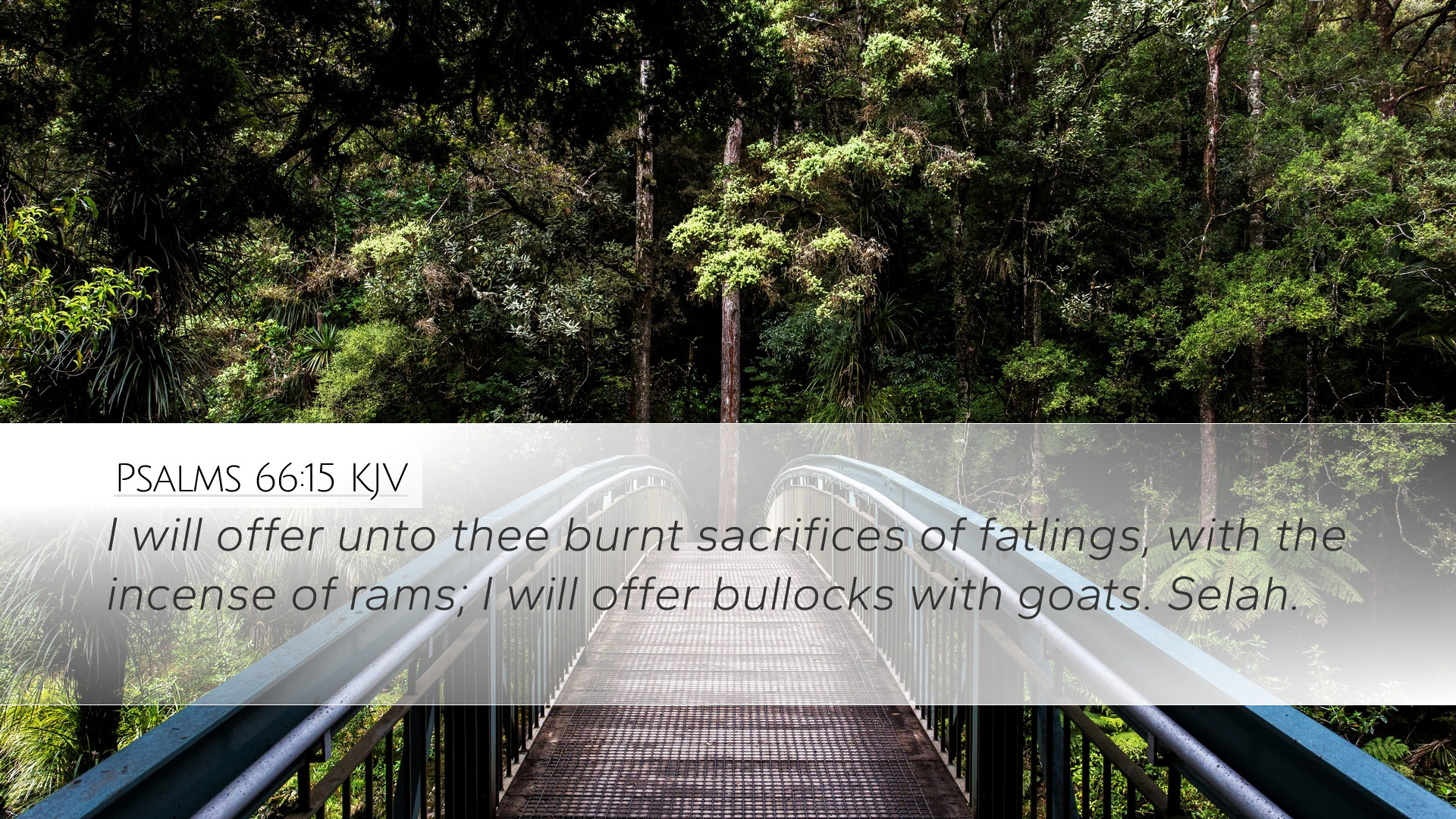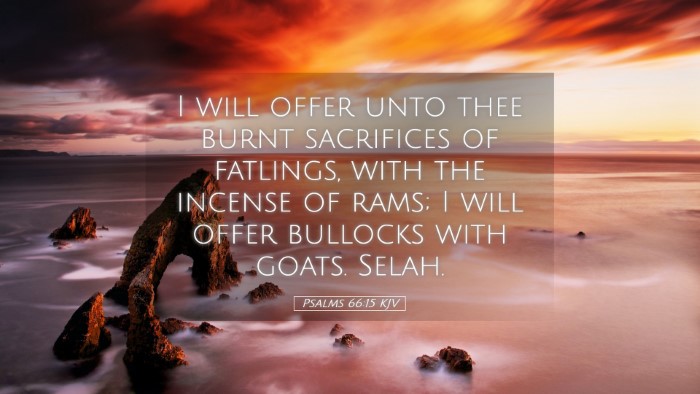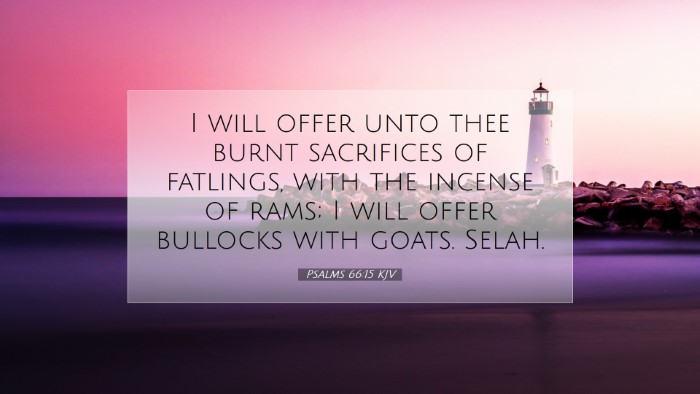Psalms 66:15 Commentary
Verse: "I will offer to thee burnt offerings of fatlings, with the incense of rams; I will offer bullocks with goats."
Introduction
The 66th Psalm is a communal expression of praise and gratitude to God, celebrating His greatness and the deliverances He has granted His people. Verse 15 stands out as a declaration of intent to offer sacrifices to the Lord, reflecting themes of worship, dedication, and the importance of sacrificial offerings in the life of faith.
Commentary Overview
In this verse, the psalmist speaks of offering "burnt offerings of fatlings," which denotes not just any sacrifice, but the best and fat portions of the offerings. This reflects a principle in biblical worship: God deserves the best we can offer.
Matthew Henry's Insights
Matthew Henry emphasizes the significance of the sacrifices mentioned in this verse. He notes that burnt offerings represent the worshipper's complete surrender and dedication to God.
- Fatlings: Henry describes the fatling as signifying the best of the flock, thus indicating the worshipper’s heart posture of giving their best to God. This act pleases God and reflects true devotion.
- Incense of Rams: The reference to rams denotes a commendable offering, as rams were considered valuable. The incense symbolizes prayer and worship, illustrating how our prayers rise like incense before the Lord.
- Symbolism of Bullocks and Goats: Henry elaborates that bullocks, being large animals, signify strength and wealth, while goats represent personal sacrifice and are suitable for various sin offerings. The inclusion of both highlights the psalmist’s understanding of diverse sacrificial meanings in worship.
Albert Barnes' Viewpoint
Albert Barnes provides a detailed analysis of the types of offerings mentioned. He states that:
- Burnt Offerings: These were offerings entirely consumed by fire, portraying surrender and atonement, reminding the worshipper of the gravity of their sin and God's holiness.
- Fatlings: He concurs with Henry, emphasizing the higher value placed on a fatling as an embodiment of the best offerings. Such sacrifices indicate the worshipper's gratitude and reverence towards God.
- Incense Significance: Barnes poetically connects the offering of incense to the idea of prayer, suggesting that prayer and sacrifice are intimately linked in the worship of God.
Adam Clarke's Commentary
Adam Clarke delves into the phraseology used in the verse, noting:
- Diversity of Offerings: Clarke highlights the various offerings mentioned and infers that it signals comprehensive dedication from the worshipper. Each type of offering has its significance and place in the worship structure.
- Ritual Context: He points out the importance of ritual in the Hebrew community, noting that the specifics of sacrifice are intricately tied to the covenant relationship the Israelites had with God.
- Prayer and Worship Unity: Clarke stresses the unity of offerings with prayer, emphasizing that genuine worship involves both the act of giving and the right heart attitude behind it.
Theological Reflections
This verse conveys profound theological truths that resonate through the entirety of Scripture. The notion of offerings serves not merely a ritualistic purpose but symbolizes a heart posture towards God. The fatlings, rams, bullocks, and goats all represent aspects of a believer’s life:
- Best for God: This principle transcends Old Testament sacrificial system to inform present-day believers to offer themselves as living sacrifices, holy and pleasing to God (Romans 12:1).
- Prayer as Incense: The idea that incense correlates with one’s prayer life invites believers to evaluate the sincerity and dedication of their prayer offerings to God.
- The Call to Worship: This passage echoes a consistent biblical theme that genuine worship must come with a sacrificial heart, recognizing what Christ has done for us and responding in gratitude.
Conclusion
Psalms 66:15 serves as a potent reminder that the essence of worship involves giving of one’s best to God and recognizing the import of sacrifices not merely as ritual but as a reflection of a deeper relationship with the Divine. The collective insights from Henry, Barnes, and Clarke inspire believers to approach worship with a heart aligned to God’s holiness, an attitude of gratitude, and a commitment to sacrificial living.


